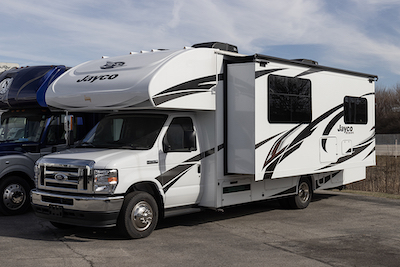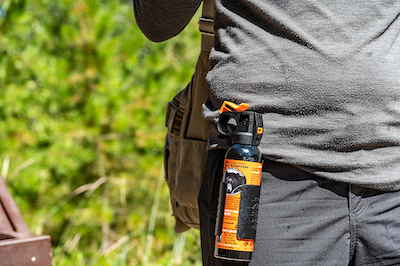The concept of mobile living has become increasingly popular, with many people opting for a life on the open road. As you contemplate your own adventures, you may be considering whether to purchase a trailer or an RV (recreational vehicle). Both options have their advantages and drawbacks, and making the right choice can be a daunting task. In this article, we’ll delve into the key differences between trailers and RVs, including their size, amenities, costs, and driving experiences, to help you make an informed decision.
Section 1: The Basics
1.1 Trailers
A trailer is a non-motorized vehicle designed to be towed by a car, truck, or SUV. It is also commonly referred to as a towable RV or a camper. There are several types of trailers, including:
- Travel trailers: Lightweight trailers ranging from 10 to 35 feet in length, with sleeping and living spaces.
- Fifth wheels: Larger trailers, generally 22 to 40 feet in length, that connect to a truck with a special hitch.
- Pop-up or folding trailers: Compact trailers with foldable walls that expand when in use, ranging from 8 to 20 feet in length.
1.2 Recreational Vehicles (RVs)
RVs, or motorhomes, are self-contained, motorized vehicles that combine transportation and living quarters. There are three main types of RVs:
- Class A: Large, bus-like vehicles ranging from 30 to 45 feet in length, with spacious living areas and luxurious amenities.
- Class B: Smaller, van-like vehicles ranging from 16 to 22 feet in length, with compact living spaces and basic amenities.
- Class C: Mid-sized vehicles ranging from 20 to 33 feet in length, built on a truck or van chassis, and offering more amenities than Class B RVs.
Section 2: Size and Amenities
2.1 Trailers
Trailers offer a wide range of sizes and layouts to accommodate different needs and preferences. Travel trailers and fifth wheels can be as spacious and luxurious as Class A RVs, with multiple slide-outs, full-size kitchens, and private bedrooms. Pop-up trailers are more modest, with limited amenities, but provide a lightweight and affordable option for those who prefer a more basic camping experience.
One advantage of trailers is that they can be unhitched at a campsite, allowing you to use your tow vehicle for local exploration without having to pack up your living quarters.
2.2 RVs
RVs provide a self-contained living space, with various floor plans and amenities depending on the class and size. Class A RVs offer the most space and luxury, with residential-style kitchens, large living areas, and private bedrooms. Class B RVs are more compact but still offer basic amenities, such as a kitchenette, bathroom, and sleeping area. Class C RVs fall in between, providing a balance of space and features.
Section 3: Driving Experience and Maneuverability
3.1 Trailers
Towing a trailer requires a compatible vehicle with sufficient power and towing capacity. Driving with a trailer can be challenging, especially for those new to towing. Maneuvering through tight spaces, reversing, and parking can require practice and patience.
The driving experience also depends on the type of trailer. For instance, travel trailers and pop-up trailers have a lower center of gravity and are generally easier to tow than fifth wheels, which require a special hitch and can be more challenging to maneuver.
3.2 RVs
RVs offer the advantage of being self-contained, which can make the driving experience less stressful than towing a trailer. However, driving an RV still requires skill and adaptability, especially for larger Class A and Class C models. Maneuvering through tight spaces, parking, and navigating traffic can be challenging for those unfamiliar with driving larger vehicles. Class B RVs, being the smallest, are easier to handle and park, making them a more manageable option for inexperienced drivers.
Section 4: Costs
4.1 Trailers
Trailers can be more affordable than RVs, with prices ranging from a few thousand dollars for a basic pop-up trailer to over $100,000 for a luxurious fifth wheel. The cost of a tow vehicle should also be considered, as you may need to upgrade your current vehicle to one with adequate towing capacity. Additionally, trailers generally have lower maintenance and repair costs than RVs, since they do not have a motor or other complex mechanical systems.
4.2 RVs
RVs can be considerably more expensive than trailers, with Class A models often costing several hundred thousand dollars. Class B and Class C RVs can be more affordable, with prices ranging from $50,000 to over $150,000. However, RVs also come with higher maintenance and repair costs due to their engines and other mechanical components. Fuel costs should also be considered, as RVs generally have lower fuel efficiency compared to towing a trailer with a more fuel-efficient vehicle.
Section 5: Lifestyle Considerations
5.1 Trailers
Owning a trailer allows you to separate your living space from your transportation, providing flexibility when exploring your surroundings. You can unhitch your trailer at a campsite and use your tow vehicle for sightseeing, shopping, or other activities without the need to pack up your living space. This can be particularly beneficial for extended stays at a single location.
5.2 RVs
With an RV, you have everything you need in one self-contained unit, making setup and breakdown at campsites more convenient. However, this also means that any time you want to go somewhere, you’ll need to take your entire living space with you, which can be cumbersome for short trips or errands. Some RV owners choose to tow a small vehicle behind their RV for added convenience, but this adds another layer of complexity and cost to your mobile living setup.
Section 6: Conclusion
Choosing between a trailer and an RV ultimately depends on your personal preferences, budget, and desired level of comfort and convenience. Trailers offer a more affordable option, with a wide range of sizes and amenities, and the flexibility of using a separate tow vehicle for local exploration. RVs provide a self-contained living space that can make travel more convenient but come with higher costs and a more challenging driving experience.
Before making your decision, it’s essential to consider factors such as your budget, driving skills, preferred amenities, and lifestyle. Additionally, it can be helpful to rent both a trailer and an RV for short trips to gain firsthand experience of what each option has to offer. This will allow you to make an informed decision that best aligns with your needs and desires for your adventures on the open road.












